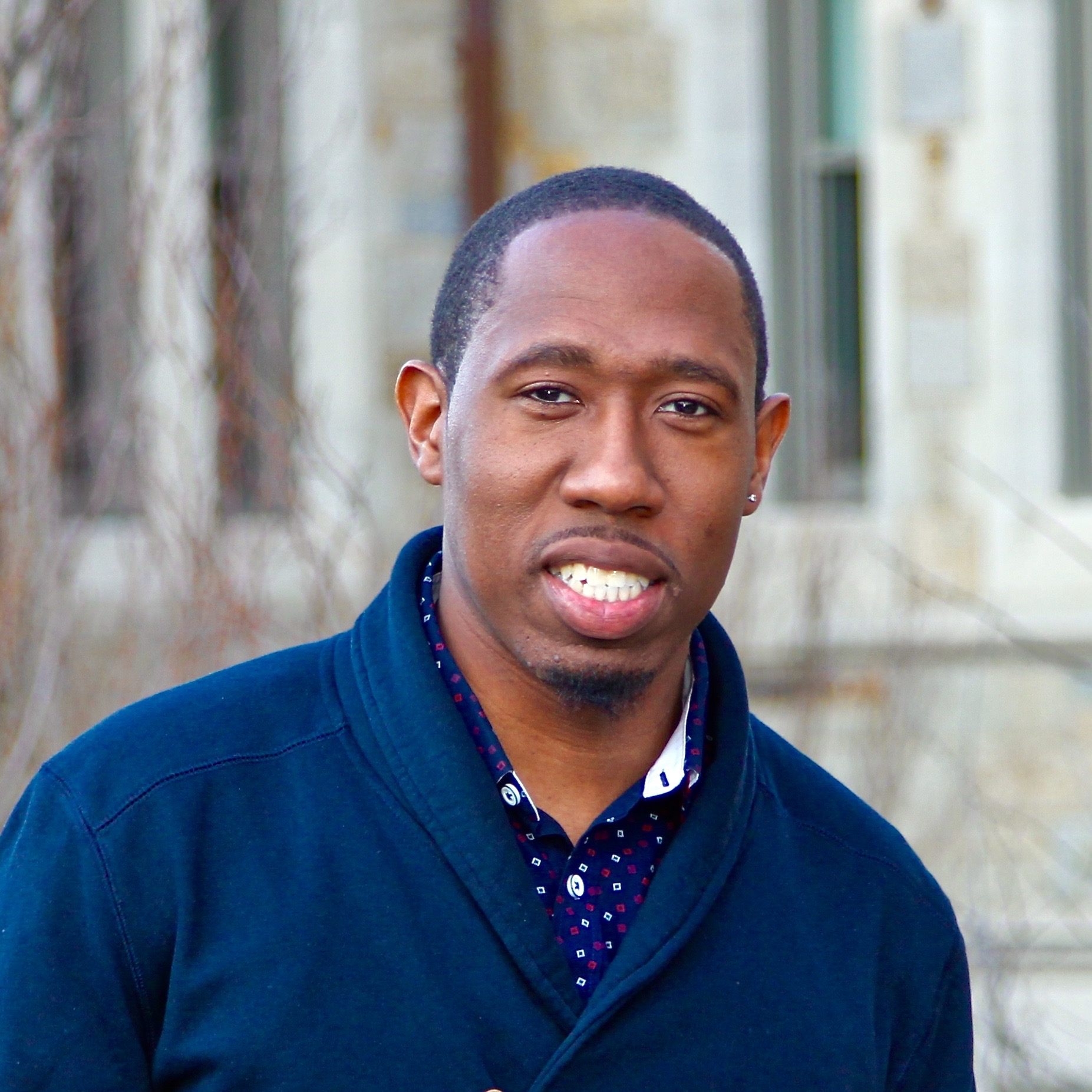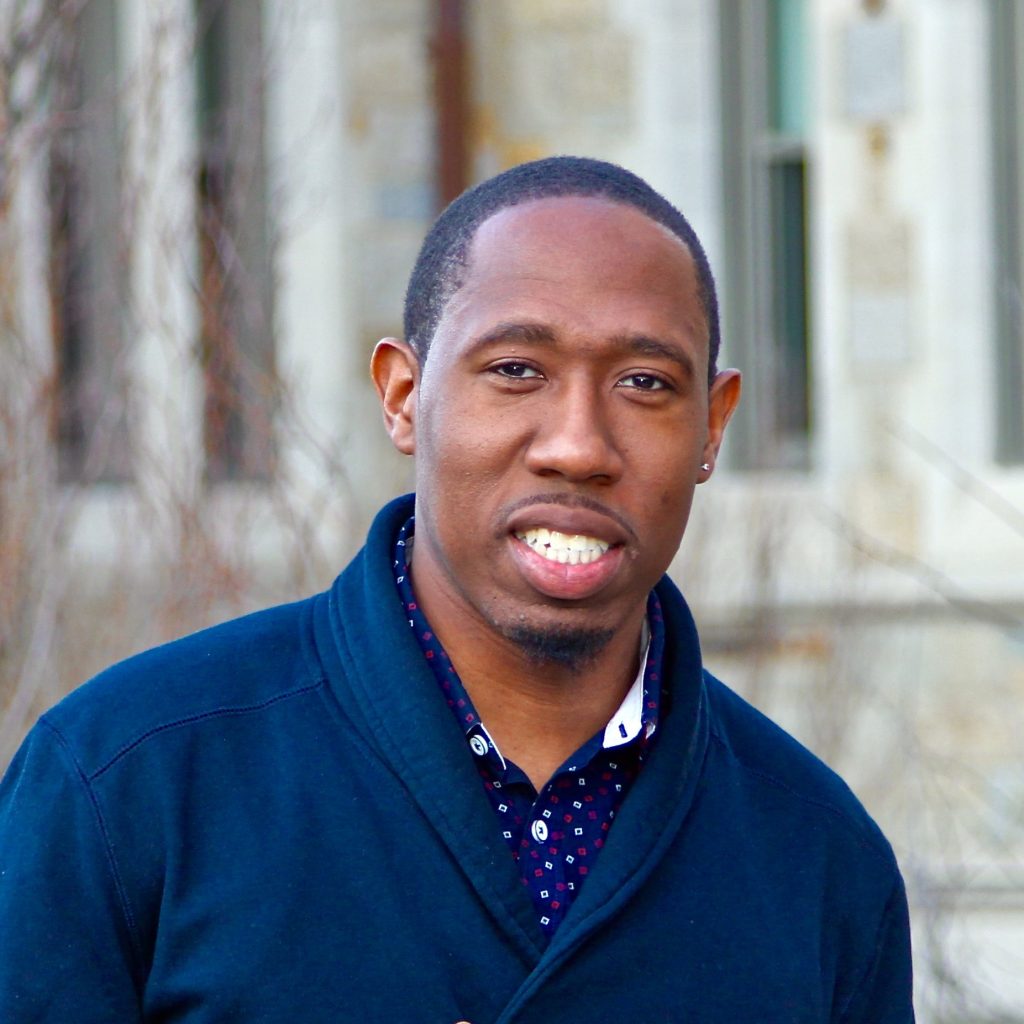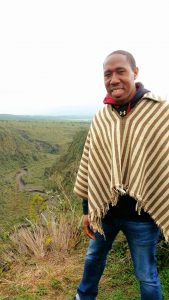Standing in the middle of the blacktop, watching my students play—the air brisk, the skies gray and the sun fighting to reveal itself—my pocket is furiously buzzing. I quickly grab my phone and remove it from my pocket in a panic, thinking it might be a parent calling or some emergency.
While unlocking my phone, I see that there are two emails and a text message exclaiming, “Congratulations!” from two of my Fulbright recommenders and the Boston College Graduate School Fulbright Program Adviser. In wide-eyed amazement, I quickly scroll through my email, looking for a message from the Fulbright Program. To my surprise, I received a gift, a surprise on my birthday. For the very first time, one of my dreams had come to life.
I am James Kale, II, and I will soon be embarking on a Fulbright English Teaching Assistantship (ETA) to Brazil!
My interest in pursuing a Fulbright ETA in Brazil stems from my ongoing educational interest in learning about the African diaspora and Brazil’s parallel history to the United States’ regarding slavery and race relations.
Still in disbelief, I am now reflecting on my path to becoming a Fulbright ETA to Brazil, a journey which has gone from something I would not have ever foreseen attaining as a first-generation, poverty-stricken, Afro-Latino Black man from the projects in the South Bronx.
I first learned about the Fulbright Program during my junior year of high school during a pre-professional and college bound career readiness program called The Opportunity Network. I was introduced to a professional, Jake Brenner, who I befriended, and we connected quickly. When learning about his life’s trajectory, he informed me that after he graduated college, he spent a year in Singapore on a Fulbright award. As a 17-year-old with great interest in globalization and post-colonialism, hearing about this opportunity appeared “cool,” and an awesome professional opportunity, but at that point in my life, I had no idea that I could ever claim this accomplishment.
From that moment on, the Fulbright name remained clear in my head. But all I knew was the name, that it was a prestigious award and that it could help someone study in another country.
Fast forward four years later to my junior year in college: One night while studying, my friend, Martin Gamboa, shared the good news that he received a Fulbright ETA award to Poland. Having no idea what a Fulbright ETA award was, he broke down the varied awards Fulbright offers, including the ETA, and how to apply. In excitement with and for him, I asked, “We get these kinds of things?” Martin is also an Afro-Latino Black man from the projects in the Bronx and NYC public school educated. He was the first person who I had met who looked like me and came from a very similar upbringing to receive a Fulbright. In that moment, I knew I would be applying for a Fulbright award to Brazil.
When my senior year of college rolled around, I informed my campus Fulbright Program Adviser of my interest in applying. However, it was mid-August and I was late to the party. I had a lot to do if I wanted to put forth a competitive application before the deadline. From August to early October, the Fulbright application was all I could think about and would prioritize over all other things. I was determined to earn this award, even though it was a struggle finding time to apply, organizing my thoughts, deciding how much of my story to share (and how to articulate the necessary parts of it in one page) – all while attempting to identify what would make my application competitive.
Through working on my essays right up to the last minute of my university’s Fulbright application deadline (with some support from my college adviser/dean, Dr. Audrey Friedman, and a former professor, Dr. Erin Wecker), I was able to submit my application on time.
When January rolled around, I was so eager to find out if I was a Fulbright Finalist. I soon found out that I was not. I was crushed and defeated. My dream sagged and weighed on me. Instead of heading to Brazil, I was headed into my first full-time teaching job and to graduate school at Boston College.
Eight months later, one September morning, while scuffling through my desk looking for something that I planned to share with my students, I came across my Fulbright interview notes from the previous year. The feeling of discouragement returned as I read them, but I also suddenly felt an urge to apply to Fulbright once again.
I contacted my graduate school and asked about the application process. I refined my essays and reached out to my dear friends and Fulbright U.S. Student Program alumni, Jake and Martin, as well as my graduate student Fulbright Program Adviser, Dr. Candace Hetzner, to ask them to review my essays. Once they’d offered their feedback and support, I applied for a Fulbright award for the second time.
For some reason, my anxiety about applying did not bother me as much this time around. I was not as consumed by the process. I applied and that was it. Teaching and graduate school kept me busy and distracted from thinking about Fulbright, and I didn’t think about it until this past January when I received the Finalist email. I had not thought about my second Fulbright application until that fateful day in the middle of the blacktop with my students. My dream did not explode, but my heart did in elation.
For those who do not believe that they can receive a Fulbright award or cannot “compete;” for those who have aspirations that go beyond themselves but are unsure of how make them happen; and for those who see themselves in the world, but something or someone is holding them back, here is my advice for applying for a Fulbright English Teaching Assistantship:
- If you have a potential host country in mind, learn more about it, write about it.
- Demonstrate the knowledge you have about your chosen host country and explain why you are applying to that specific country.
- Make sure to identify what you are applying for and what you plan to do in your Statement of Grant Purpose.
- Get help! Connect with people whose opinion you trust and ideally, someone who has completed a Fulbright award such as a Fulbright Alumni Ambassador.
- Your Personal Statement must succinctly explain yourself. You want the reviewers to feel as if they had a sit-down talk with you and learned about how you think, maneuver within the world, and will benefit from a Fulbright experience as it relates to your future goals and plans.
- As cliché as it sounds, “Show, don’t tell.” Being a Fulbrighter is an opportunity to orchestrate cross-cultural communication within your chosen host country community. In writing your Personal Statement and Statement of Grant Purpose, detail a synthetization of your previous travels, whether they were for enrichment, educational or familial purposes. The work that you’ve done and that you will be bringing to classroom interactions will help your students to learn. Additionally, detail how you will engage with your host community outside of the classroom. Describe the people and/or experiences that have shaped your life and your ambitions, and connect them to your application. Show who you are, how you’ve understood your life’s experiences, and that they are transferable to your work as a cross-cultural ambassador and enthusiast.
- Lastly, don’t give up! Applying for a Fulbright award can and will be frustrating and overwhelming at times, particularly when seeing your essays that you’ve put so much work into get edited, chopped up, and changed. Don’t be discouraged. Applying is a long process, but a humbling and enlightening one.
- Reflection, adaptability, and perseverance can all help in putting together a Fulbright application, but so can keeping the goals and purpose of Fulbright Program in mind.




1 Comment
Go James do the fullbright purpose. This is your first move savor the moment.